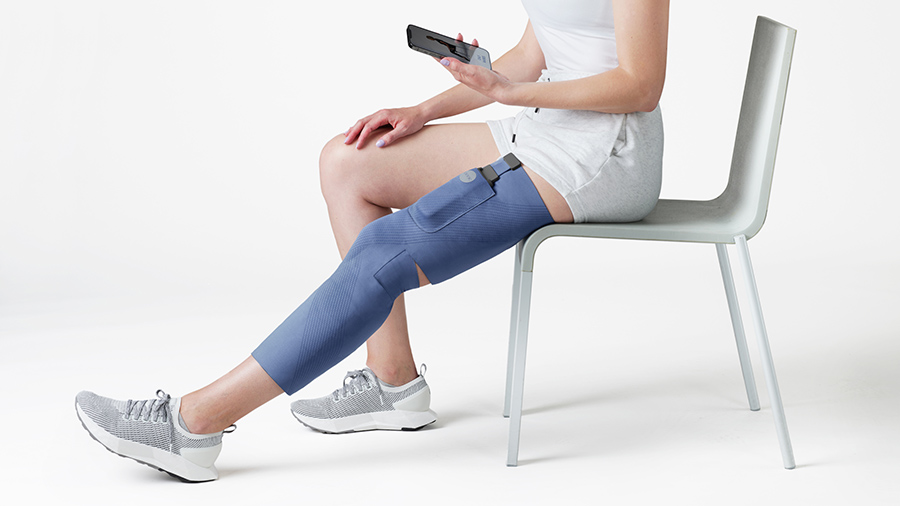“Breakthrough” wearable bionic leg improves mobility outcomes in trials

Marrying together inclusive design with pioneering mobility technology, a new wearable bionic leg is looking to make waves in the assistive technology space.
Cionic Neural Sleeve uses artificial intelligence (AI) to understand and influence human mobility in real-time, enabling greater access and independence for those with reduced mobility, such as individuals with multiple sclerosis, stroke, and cerebral palsy.
Cionic, which creates bionic clothing that can analyse and augment human movement, partnered with an acclaimed designer, Yves Behar, and his design firm, fuseproject, to launch the wearable bionic leg.
The sleeve is designed for everyday wear. Importantly, it is easy to put on and take off, which is imperative for individuals with restricted mobility.
The lightweight, breathable fabric has a similar feel to sports leggings, according to Cionic, and is available in multiple colours and sizes. Paired with the intuitive Cionic app, the sleeve enables the user to be in control of their own mobility journey.
Cionic Neural Sleeve has demonstrated an improvement in mobility outcomes during user trials.
Cionic trial participants across multiple locations demonstrated strong improvement on the two key measures associated with foot drop: dorsiflexion at heel strike (94 percent of users), and ankle inversion during swing (88 percent of users). Notably, when combining the two measures, there was an average improvement of 9° for participants, the firm underlines.
Cionic Founder and CEO Jeremiah Robison, said: “Building bionic clothing that can augment human movement takes a thoughtful and holistic approach. It starts with advanced technology capable of adapting to each user’s mobility needs to deliver meaningful outcomes.
“Then we designed it to be comfortable to wear and effortless to use. From software to soft goods, our team of experts have pushed the boundaries of human-machine interface to deliver the future of assistive technology.
“Ultimately we are creating not just a single solution, but a platform for bionic clothing that can analyse, predict, and augment human movement for all.”
The wearable leg prioritises user experience. Alongside improving mobility and independence, the design strives to help wearers overcome some of the emotional upset that can come with having reduced mobility.
To achieve this, Cionic and fuseproject worked with potential users to understand their needs and create “the best possible solution”.
Dr. Jacqueline Nicholas, System Chief Neuroimmunology and Multiple Sclerosis at the OhioHealth MS Center, has been an advocate for the Cionic Neural Sleeve, seeing two of her multiple sclerosis patients walk better than they had in ten years after programming the device to their needs.
“This is the first comprehensive system that addresses key muscle groups of the leg, which means it has the potential to improve mobility and function with continued use,” she enthused. “It’s unlike anything I’ve ever seen.”
Home usability trials were also conducted to understand the impact of the bionic leg on mobility over time. Not only has reported mobility improved for many of these users, Cionic notes, but the number of users experiencing moderate-to-severe pain was reduced by 60 percent, and the number of users experiencing moderate to severe anxiety or depression was reduced by 75 percent.
Beverly Chaidez, who has multiple sclerosis and participated in the home usability trials, described her experience with the Neural Sleeve: “When I started the home usability trial I was only able to walk for about five to 10 minutes at a time, and I used a wheelchair for mobility outside of the home.
“Today, I can walk for 40 to 50 minutes at a time and I haven’t used my wheelchair in over a month. I feel hopeful and optimistic that I can regain a lot of things that I lost.”
Cionic is now accepting pre-orders on its website for early 2023 delivery in the USA. The firm told AT Today that after it has launched in the USA, it will explore launching the sleeve internationally.

